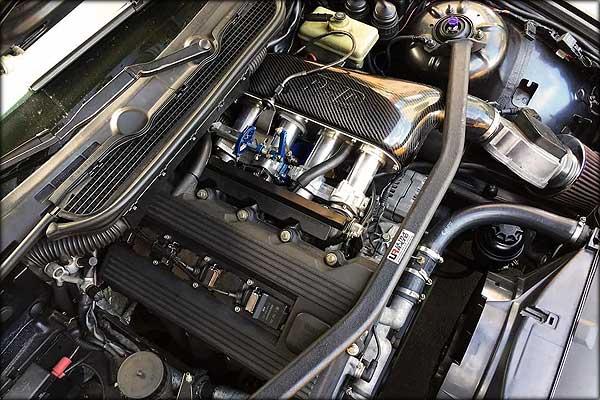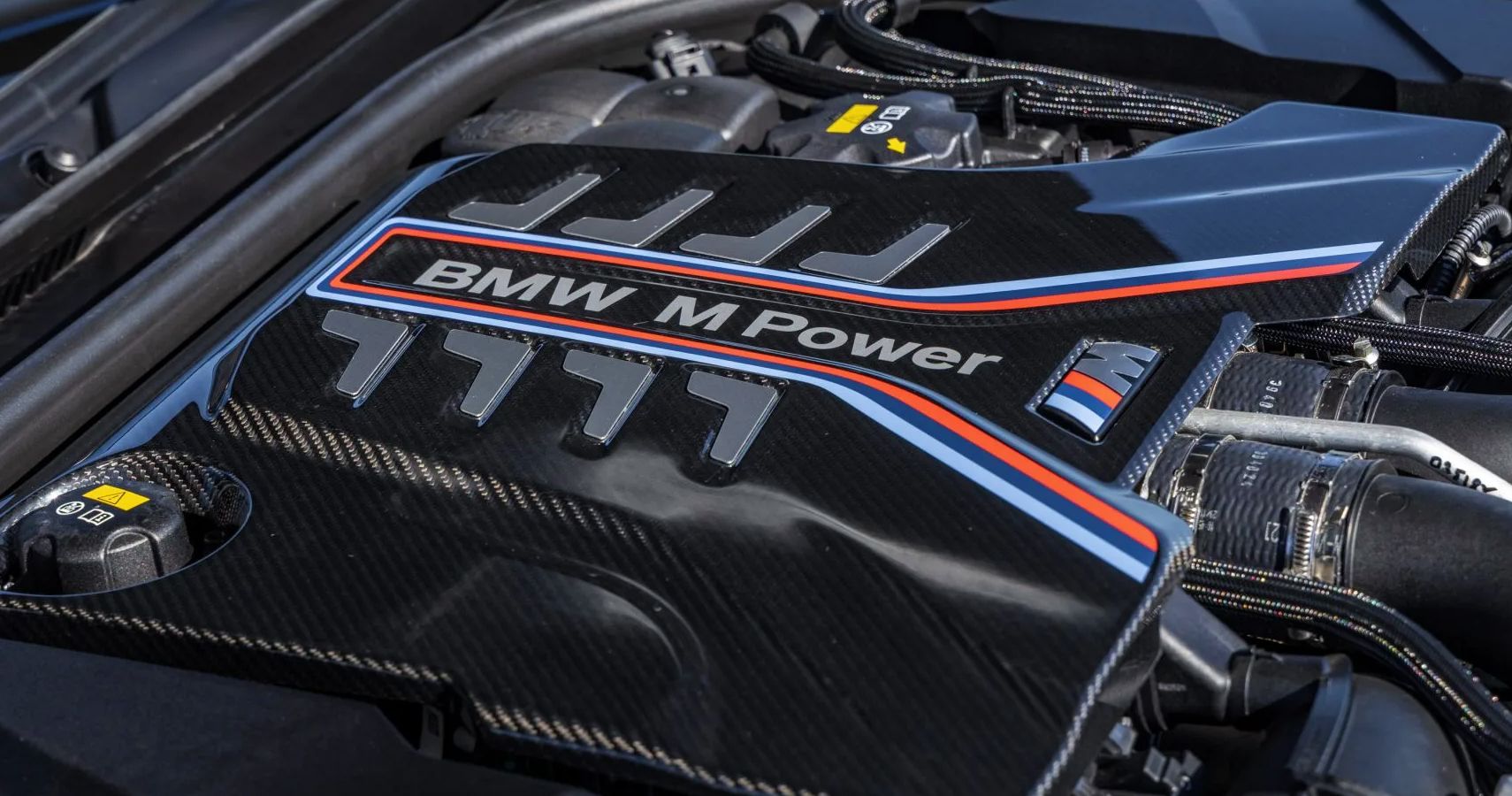The Evolution of the BMW Engine: A Look Back at Iconic Models
The Evolution of the BMW Engine: A Look Back at Iconic Models
Blog Article
Introducing the Intricacies of Next-Generation Power Units: a Deep Dive Into Advanced Engine Developments and layouts
In the world of automobile engineering, the relentless pursuit of sustainability, performance, and effectiveness has driven the evolution of power devices to extraordinary elevations. As we base on the precipice of a brand-new age in transport, the intricacies of next-generation engine designs bid us to check out the sophisticated modern technologies and advancements that guarantee to redefine the driving experience. From advanced products that push the limits of toughness and weight reduction to sophisticated turbocharging and turbo charging systems that boost power outcome to new degrees, each element of these power units holds a vital to unlocking the future of vehicle engineering. Digging deeper into the worlds of emission control, smart engine administration systems, and the horizon of power system development, we locate ourselves on the cusp of an improvement that guarantees to improve the landscape of wheelchair as we know it.
Evolution of Engine Materials

The change towards advanced engine products has also enabled engineers to make engines with higher power outputs while maintaining gas efficiency criteria. As an example, the usage of light-weight products decreases the total weight of the engine, bring about improved fuel economic situation and reduced discharges. Furthermore, developments in products innovation have actually enabled better thermal administration within engines, causing increased reliability and longevity.
Turbocharging and Supercharging Technologies
Just How do Turbocharging and Supercharging Technologies change engine performance and performance in modern-day cars? Turbo charging and turbocharging are innovations that considerably boost engine efficiency by raising the amount of air intake into the combustion chamber. Turbocharging accomplishes this by using a wind turbine driven by exhaust gases to pressurize the intake air, while turbo charging utilizes a belt- or chain-driven compressor to accomplish the very same result.
These innovations allow smaller, more fuel-efficient engines to generate power equivalent to bigger ones, understood as downsizing. By requiring more air into the cyndrical tubes, turbocharging and supercharging boost burning efficiency, resulting in boosted horse power and torque output without a significant rise in engine size. This causes better acceleration, lugging capability, and overall driving efficiency.
Moreover, turbocharging and turbo charging contribute to enhanced gas performance by enabling the use of smaller sized engines that consume less gas under regular driving conditions - bmw engine. This combination of improved performance and efficiency has actually made turbocharging and turbo charging essential elements of several modern-day engine designs
Emission Control and Environmental Effect
With raising international concerns regarding air high quality and ecological sustainability, the execution of exhaust control technologies in cars plays a critical function in reducing hazardous contaminants released right into the environment. Modern cars are outfitted with innovative exhaust control systems that aid minimize the environmental impact of vehicle procedures. Catalytic converters, for circumstances, are designed to convert harmful gases such as carbon monoxide, nitrogen oxides, and hydrocarbons into less dangerous compounds like carbon dioxide and water vapor.
Moreover, innovations in engine modern technology, such as the combination of exhaust gas recirculation systems and selective catalytic reduction, have actually significantly added to decreasing exhausts. These modern technologies operate in tandem to enhance burning performance and decrease the launch of dangerous contaminants into the air. Additionally, the development of crossbreed and electrical cars represents an essential step towards decreasing the overall ecological impact of the transportation field.
Intelligent Engine Management Systems

Furthermore, these systems enable automobiles to meet rigorous discharges standards without endangering performance, providing a much more eco-friendly driving experience. The integration of expert system and machine understanding capabilities in engine administration systems continues to push the borders of what is feasible, resulting in more improvements in effectiveness, integrity, and overall automobile efficiency. bmw engine. As automobile technology advancements, intelligent Your Domain Name engine administration systems will play a crucial role fit the future of transport towards a much more effective and sustainable instructions
Future Trends in Power Device Development
As intelligent engine management systems lead the way for enhanced control and optimization in modern cars, future fads in power device development are poised to redefine the landscape of auto propulsion innovations. One of the crucial fads driving development in power device advancement is the shift in the direction Discover More of electrification. With a raising focus on sustainability and decreasing carbon discharges, crossbreed and electrical powertrains are coming to be more prevalent in the automotive industry. These alternate source of power offer improved efficiency and performance while aligning with rigorous environmental laws.
One more significant pattern is the combination of sophisticated materials and making strategies. Light-weight materials such as carbon fiber and light weight aluminum are being made use of to reduce total car weight, boosting fuel performance and efficiency. Additionally, developments in 3D printing and additive production are making it possible for the manufacturing of complicated engine components with higher accuracy and longevity.
Furthermore, man-made intelligence and artificial intelligence are playing an essential role in maximizing power unit efficiency. These modern technologies permit real-time tracking and flexible control, resulting in more efficient and reputable power shipment. In general, future patterns in power device advancement are geared in the direction of performance, effectiveness, and sustainability, driving the automobile sector in the direction of a new era of propulsion innovations.

Final Thought
In final thought, the innovations in engine materials, this contact form turbocharging, discharge control, and intelligent administration systems have actually led the method for next-generation power units. The detailed designs and technologies in contemporary engines display the continuous advancement of automobile innovation.
Checking out the progressive developments in engine materials has actually been essential in enhancing the efficiency and effectiveness of modern engines. Over the years, the evolution of engine materials has actually played an essential function in pressing the limits of what engines can attain.The shift in the direction of progressed engine products has actually also enabled engineers to create engines with higher power outputs while preserving fuel performance requirements.The application of smart engine administration systems in modern cars has actually changed the way engines are regulated and optimized for performance and performance. By accumulating information in real-time and evaluating it with sophisticated formulas, intelligent engine monitoring systems can adapt to driving styles, environmental aspects, and engine wellness to optimize power result while minimizing fuel usage and exhausts.
Report this page